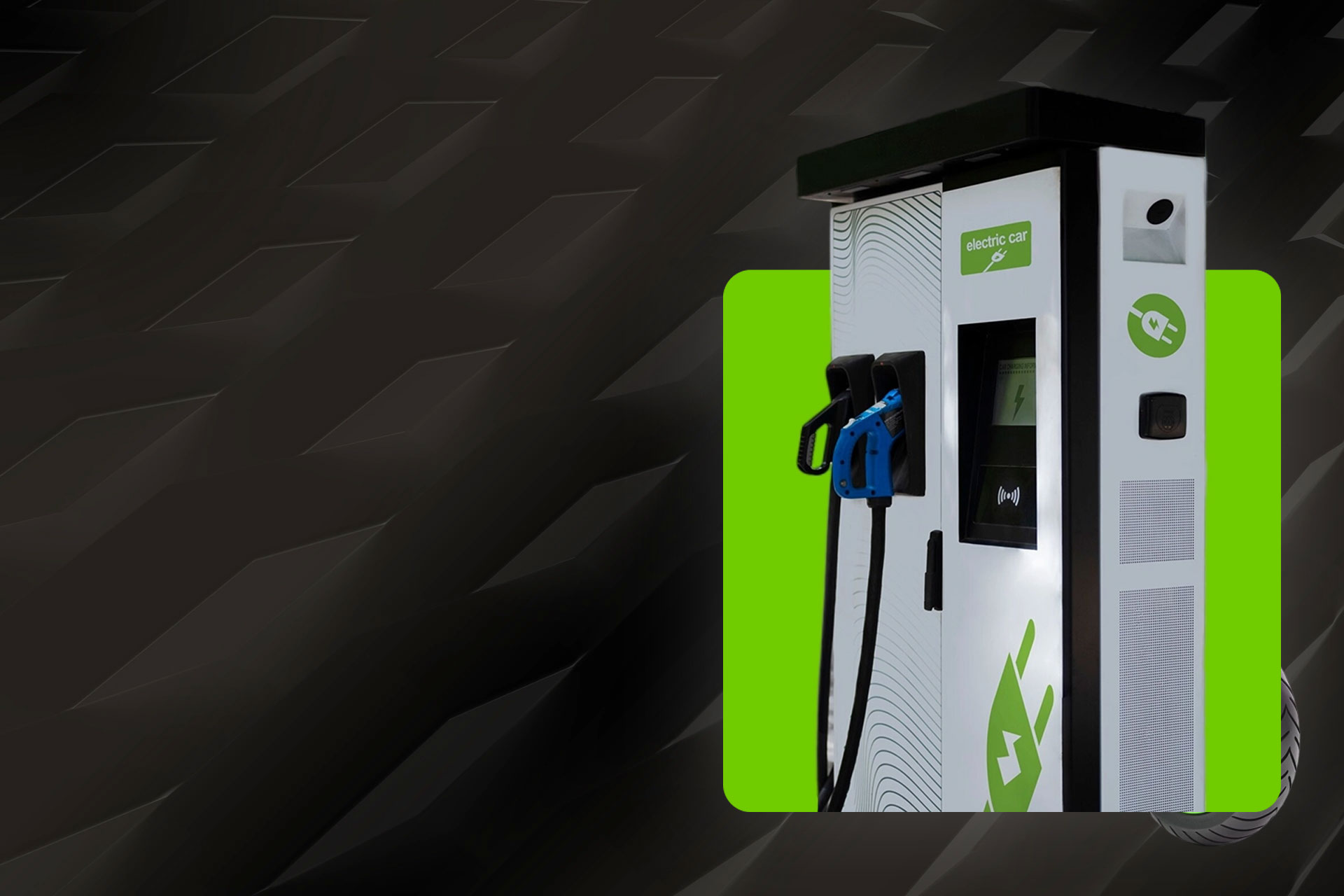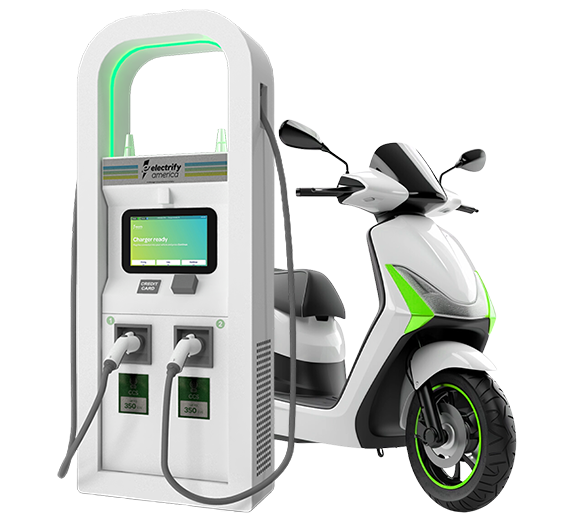
Charging Station
EV Charging Station
EV Charging Station


Charging Station
An electric vehicle (EV) charging station, also commonly called a charge point or electric vehicle supply equipment, is a device specifically designed to supply electrical power for recharging plug-in electric vehicles. These charging stations come in two primary types: AC charging stations and DC charging stations. Their purpose is to provide a convenient and efficient means for EV owners to recharge their vehicles, ensuring that they have sufficient power for their daily or long-distance journeys
Some of the major components are:What is EV charging?
EV charging refers to the process of filling the battery of an electric vehicle (EV) with electricity. This can be done in a number of ways and at different locations such as home charging, public charging stations, or dedicated EV charging equipment installed in businesses – commonly known as workplace charging.
There are different types of EV chargers available, such as Level 1 and Level 2 chargers. Level 1 chargers use a standard household electrical outlet (AC power) and are generally slower, providing an average of 3-5 miles of driving range per hour of electric car charging. Level 2 chargers, on the other hand, require a dedicated charging station or wall connector to operate, providing faster charging speeds than Level 1 chargers.
The second type and fastest option for EV charging is DC fast charging. DC fast chargers, also known as Level 3 chargers, use high-powered direct current (DC) to rapidly charge an EV's battery. These chargers can significantly reduce charging times, allowing an electric car to charge its battery to 80% in less than 30 minutes.Nowadays, chargers/charging stations available in the market take 2 to 5 hours to charge. In future we will work on that technology to reduce charging time to 30 to 60 minutes
Growing Demand for EV Charging Infrastructure: With governments around the world implementing policies to encourage the adoption of electric vehicles, the demand for charging infrastructure is skyrocketing. By investing in an EV charger franchise, you can take advantage of this growing market and provide a valuable service to EV owners in your area.
Sustainability: EV chargers contribute to building a sustainable future by reducing carbon emissions and promoting the use of renewable energy sources. Starting an EV charger franchise allows you to actively participate in the green revolution and bring about a positive change in your community.
Revenue Generation: : EV charging business can be highly profitable. EV owners require regular charging and are willing to pay for the convenience and reliability of charging stations. Setting up an EV charger franchise can generate a steady revenue stream through charging fees, membership programs, and partnerships with local businesses.
Long-term revenue potential:As EV adoption continues to grow, the demand for charging stations is expected to steadily increase. This could translate into a long-term revenue stream for your franchise, as EV owners will need reliable locations to charge their vehicles.
Future-proofing: With the global shift towards clean energy and reduced reliance on fossil fuels, investing in EV charging infrastructure is in line with long-term trends. This puts your franchise in a position to remain relevant and in-demand in the years to come.
Electric-scooter

Types of EV Chargers
There are three types of electric chargers available for EVs depending on the level of charging that they provide:
Level 1 Charging (Slow Charging)
It is the basic charging equipment with slow speed. It uses 120 volts (V) through an Alternating Current (AC) plug and can be used on home circuits. Charging a battery through this equipment takes around 8 to 12 hours. It is mainly used in households for overnight charging of the EV.
Level 2 Charging (Standard Charging)
It provides an average charging time of 4 to 6 hours through a 240 volts (V) AC plug. It is compatible with all EVs including plug-in electric hybrid vehicles. These stations are primarily installed in public parking spaces and commercial and residential buildings.
Level 3 Charging (Rapid Charging)
It can charge a battery up to 80% in 20-30 minutes using 480 volts (V) Direct Current (DC) plug. However, it is not compatible with all EVs. They can be installed only in public charging stations.
FACILITIES-
With the development of technology, we will keep all our charging stations connected to the network and applications through which the user will be able to know the availability of the charging station as per his distance. Additionally, drivers can plan their charging in advance, track their charging status through the app and also view their charging history through the app. Be able to plan your position in relation to the time of arrival at the charging station, to eliminate any uncertainty or frustration that may arise from having all the chargers with you when you arrive at the station.
Additionally, networked charging stations will allow users to monitor their charging sessions remotely. They can check their charge progress, receive notifications when their vehicle is fully charged, and even monitor their charging. You can also track history. This level of connectivity and accessibility will provide EV owners with a seamless charging experience and increase their confidence in electric vehicles as a reliable mode of transportation
With the development of technology, we will keep all our charging stations connected to the network and applications through which the user will be able to know the availability of the charging station as per his distance. Additionally, drivers can plan their charging in advance, track their charging status through the app and also view their charging history through the app. Be able to plan your position in relation to the time of arrival at the charging station, to eliminate any uncertainty or frustration that may arise from having all the chargers with you when you arrive at the station.
Additionally, networked charging stations will allow users to monitor their charging sessions remotely. They can check their charge progress, receive notifications when their vehicle is fully charged, and even monitor their charging. You can also track history. This level of connectivity and accessibility will provide EV owners with a seamless charging experience and increase their confidence in electric vehicles as a reliable mode of transportation




